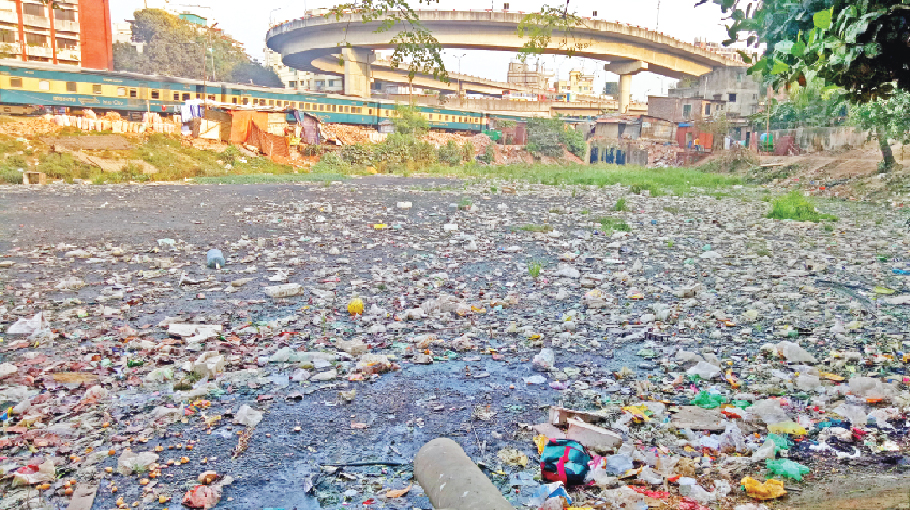Polybag use still rampant, ban proves futile

Bangladesh is the first country in the world to ban plastic and polythene bags but polybags are ubiquitous and its use is still now rampant in the country.
Polybags are so handy in market that it does not look like a ‘banned item’. People across the country are seen carrying utilities and commodities in polybags, while traders sell their items and put those in polybags for customers to carry.
As plastic and polybags are a significant cause of environmental pollution, the government imposed a ban on polybags on April 8 in 2002 through an amendment to the ‘Bangladesh Environment Conservation Act, 1995’. The ban was imposed on the manufacture, import, marketing, sale, stock, distribution and commercial use of all kinds of polythene shopping bags.
According to the amended law, if anyone is found violating the ban he would face an imprisonment of 1-10 years, or a fine of Tk 50,000-10 lakh, or both.
However, the implementation of the ban still remains a challenge. Almost every shop across the country still uses polybags as before.
A shopkeeper of Banasree area in the capital said that although banned, “Plastic and polybags are available in all shops. The ban is just on the paper,” he said.
However, the High Court on January 6 in 2020 asked the authorities concerned to enforce the plastic ban seriously and issued an order to reduce use of polybags in 2021.
The higher court also asked the authorities concerned to remove polybags completely from all restaurants and shopping malls, especially in coastal regions, by 2022. The High Court also wanted a report by January 5 in 2021 about the progress in implementing the directive.
The directive was issued after hearing a writ petition jointly filed by the Bangladesh Environmental Lawyers Association (BELA) and 10 other environmental organisations.
The year 2022 already ended, and despite the High Court order polybags remain ubiquitous in defiance of law.
Against this backdrop, BELA on Thursday served contempt notice to secretaries of five ministries and director general of the Department of Environment (DoE).
BELA served the notice on the secretaries of the ministries of environment, industries, commerce, water resources, civil aviation and tourism, textiles and jute, the DoE DG, and the chairman of the Bangladesh Plastic Products Producer and Export Association.
The BELA notice warns the respondents that they would file a petition with the High Court seeking a contempt ruling against the respondents for flouting the court directives.
BELA also told the respondents to implement another court directive to enforce strictly a ban imposed by the environment ministry on the marketing and use of polythene or plastic bags.
BELA further requested the authorities concerned to carry out the order of the court to monitor the situation regularly and shut down factories manufacturing polybags and plastic containers across the country and seize their machinery.
Syeda Rizwana Hasan, chief executive of BELA, said that as the authorities concerned failed to carry out the High Court order, BELA served them with the notice in this regard. “The government is responsible for the rampant use of polybags. Despite the ban, people and sellers are still using polybags because the enforcement authorities overlook the matter,” she added.
About the issue, a DoE official said that following the High Court order they made a three-year action plan and submitted it to the ministry. He, however, said that there are many things to consider with the permanent ban on polythene bags, such as unemployment, the effect on the economy and alternatives for the bags.
Plastic is a non-perishable commodity and throwing away used plastic bags not only increases garbage but also leads to air pollution when burned. Similarly, these bags cause sewerage lines to become clogged, which create drainage problems.
A study found that only 10-15% of polythene and plastic bags are properly disposed of or recycled after use. Most of it end up in drains, sewage pipes, and open areas, and this is responsible for up to 80% of Dhaka’s waterlogging problem.



